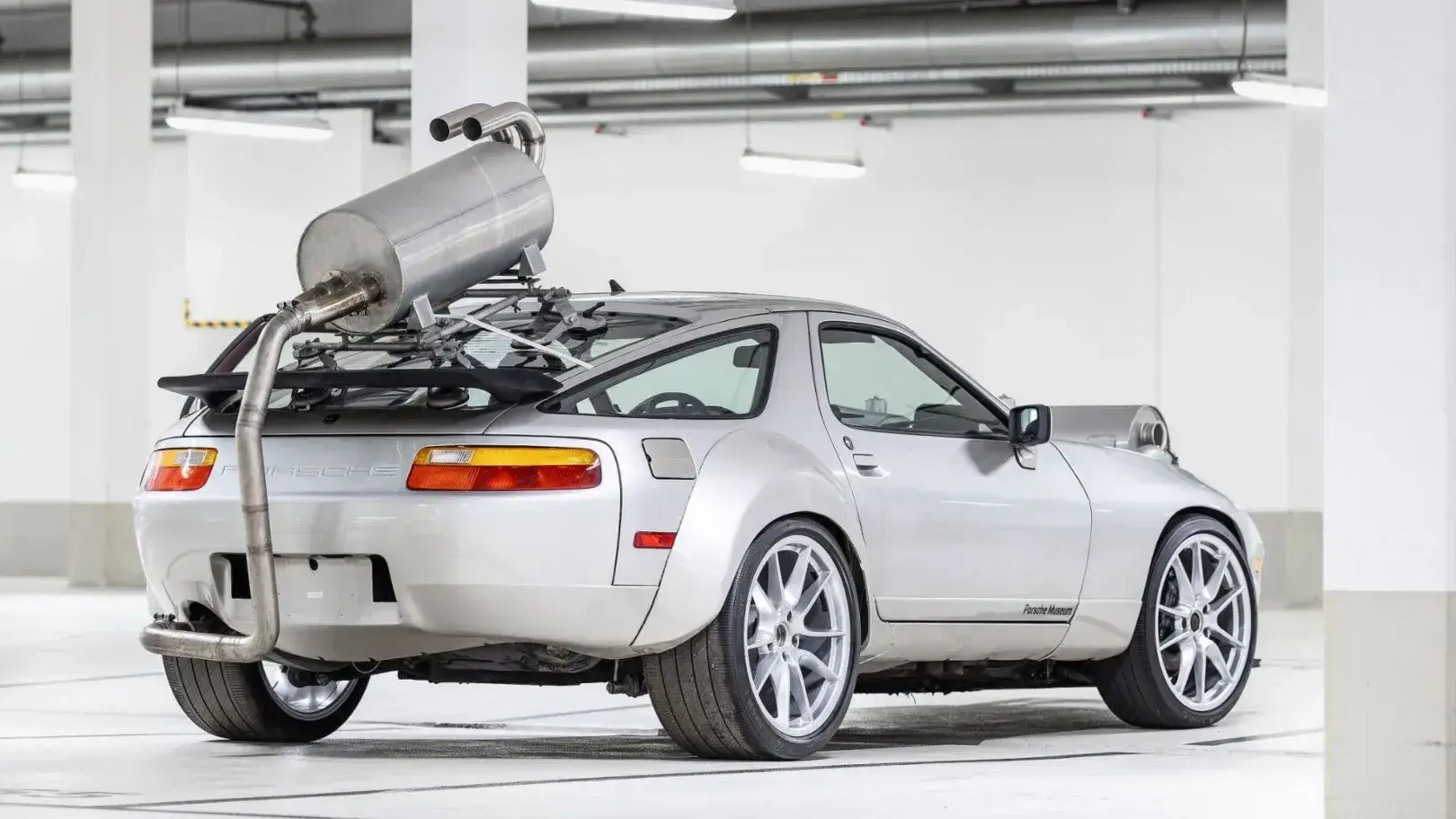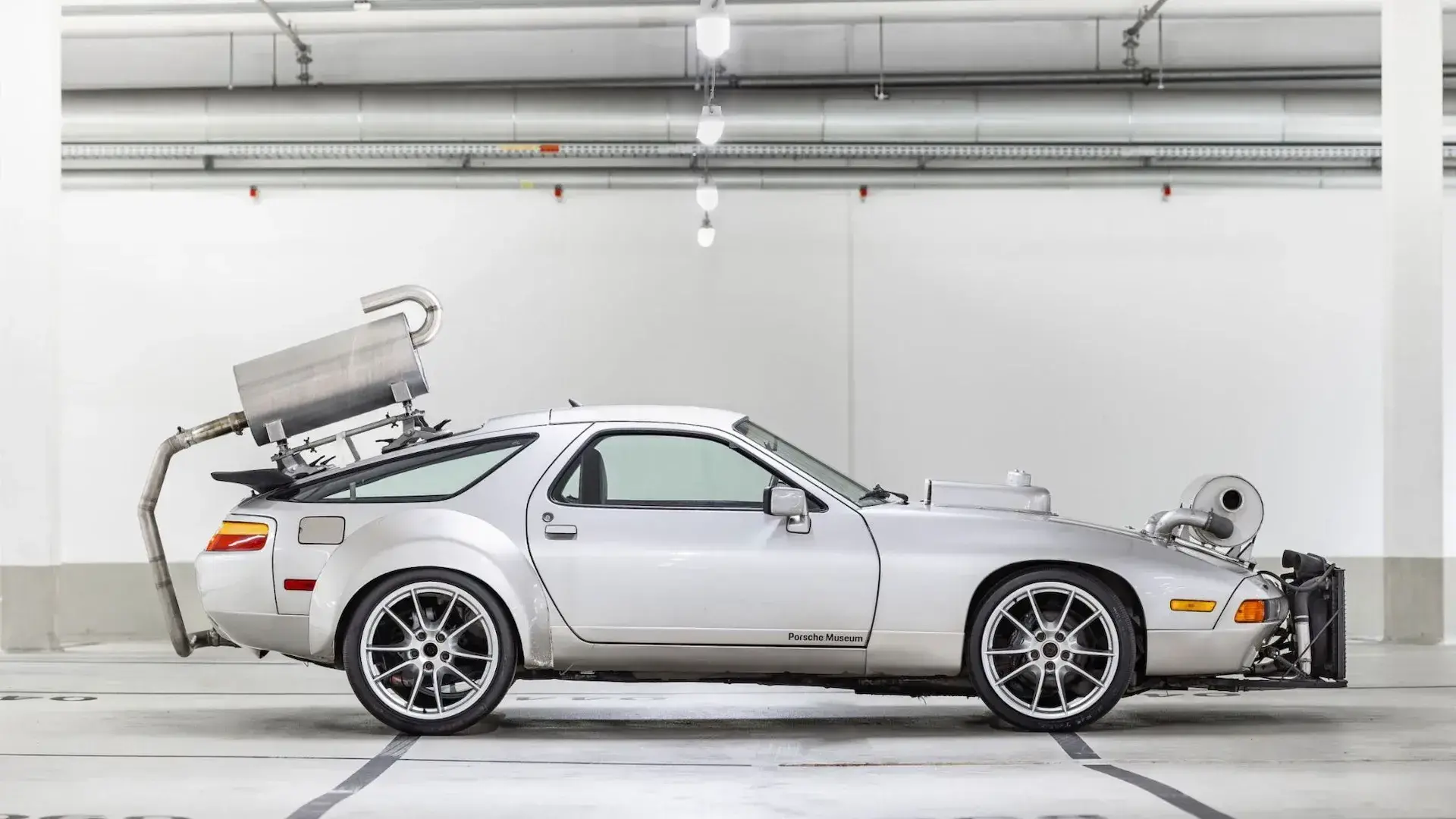
Today's vehicles are, on average, much quieter than their predecessors, offering a more pleasant driving experience. This leap in noise reduction owes much to an innovative and specially modified Porsche 928, which played a pivotal role in this transformation.
The Genesis of a Noise Test Vehicle
The story begins with a unique Porsche 928 that served as a noise test vehicle for over three decades. This remarkable car, now retired and proudly displayed at the Porsche Museum in Stuttgart, Germany, is a testament to the meticulous efforts of engineers who sought to address stringent noise regulations. Visitors to the museum can marvel at its unusual array of appendages, each serving a specific purpose in the quest for quieter cars.

The Need for Noise Reduction
In the late 1980s, automotive noise regulations were becoming increasingly stringent, and Porsche, like other automakers, needed to ensure compliance. Engineers had to measure and analyze the noise emanating from various parts of their vehicles to achieve this. Among Porsche's models, the 928 emerged as the ideal candidate for this task, thanks to its specific characteristics.
Why the Porsche 928?
Harald Mann, one of the testers involved in the project, explained that the testing process required substantial power in the lower engine speed range. This requirement ruled out the Porsche 924, the entry-level sports car at the time. The 944 and the iconic 911 were also unsuitable due to gearbox rattle at low loads and inherently louder engine sounds.
Modifications for a Quieter Ride
Thus, in 1989, the Porsche 928 was transformed into a specialized noise test vehicle. Its primary mission was to determine the noise levels generated by tires. Other noises, such as those from the engine and drivetrain, had to be minimized to achieve accurate measurements. This necessitated a series of innovative modifications, resulting in the 928's distinctive and somewhat outlandish appearance.
One of the most notable modifications was the relocation of the radiator to the front bumper. A large barrel-like silencer was added to the front of the car for the intake, while bumps on the hood housed fans that could draw hot air out of the engine compartment when needed, thereby reducing noise. An extra-large muffler was mounted on the rear window to quiet the exhaust, and the driveshaft and gearbox were insulated. To accommodate different tire sizes, large rear fender flares were added.
The Role of the Prototype V-8 Engine
Under the hood, the test car featured a prototype 5.4-liter V-8 engine, part of the development program for the ultimate version of the 928, the 928 GTS. This engine, combined with the stock 5-speed manual gearbox, which was already relatively quiet, ensured that the 928 could provide accurate noise measurements. During testing, the car would be driven past a set of microphones, with noise levels from the car in second and third gear averaged for analysis.
Legacy of the Noise Test Vehicle
The Porsche 928 noise test vehicle continued to serve its purpose for many years, contributing invaluable data that helped Porsche and the broader automotive industry develop quieter cars. The lessons learned from this project were instrumental in advancing noise reduction technologies that are now standard in modern vehicles.
The retired Porsche 928 noise test vehicle, now a museum exhibit, stands as a symbol of the automotive industry's commitment to innovation and improvement. Its legacy lives on in the quieter, more comfortable cars we drive today. This remarkable car not only showcases the ingenuity of Porsche engineers but also highlights the ongoing pursuit of excellence that defines the automotive world.